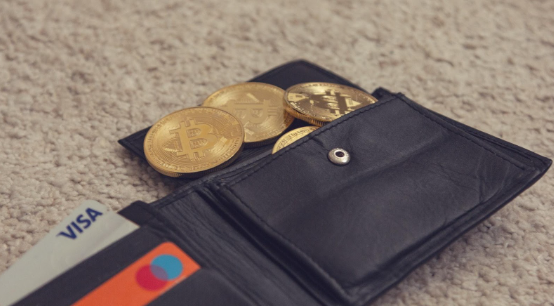Cryptocurrency is digital money. You can store it in a cryptocurrency wallet. A cryptocurrency wallet is an app or hardware that allows you to make transactions with your digital coins. These wallets have different features and functions, but each has pros and cons. Here’s what you need to know about them.
A cryptocurrency wallet is an online software program that stores private and public keys. It allows you to access your funds, make transactions, and check your balance. You can also generate public and private keys for different cryptocurrencies.
It’s important to remember that a hot wallet isn’t safe from hackers because it is connected to the Internet. So, to keep your cryptocurrency safe from hackers, use cold storage instead of a hot wallet.
A hot wallet is an online or mobile app that allows you to transact with cryptocurrency, transfer money between wallets, and trade for other assets like Bitcoin (BTC) and Ethereum (ETH).
You can use it for trading. For example, if you want to buy a certain amount of Bitcoin but don’t have enough funds in your bank account, you could use a hot wallet instead of transferring money from your bank account into an exchange through an ACH transfer.
The downside is that if someone steals your login information or gains access to the device where your private keys are stored, they will also be able to access all of the cryptocurrencies stored there.
A hot wallet is a cryptocurrency wallet that is connected to the Internet. The reason for this is simple: it’s readily available for you to access on any device with an internet connection to make transactions. But, of course, this means something else: if you have a hot wallet, your private keys are stored directly on your device.
The first thing we need to do when we look at how hot wallets work is to understand how they differ from cold wallets.
Hot wallets run 24/7 and don’t need any interaction with third-party services or companies like Coinbase or Circle to operate normally. In addition, they’re decentralized—meaning no single server is responsible for running them—and can be accessed through various devices as long as they have an internet connection.
Hardware wallets are the most secure, but they cost money. First, you must buy and store a device safely (in a safe deposit box or at home). The cost is about $100 for such wallets as Trezor, KeepKey, or Ledger Nano S/X. If you don’t want to spend money on hardware wallets, we recommend you try paper or online wallets.
A paper wallet is a document with public and private keys printed in QR code format. You can share public keys so people can send cryptocurrencies to them, while you should always keep private keys secret! Paper wallets are easy to use but are not recommended if you plan to store large amounts of cryptocurrency. In addition, they’re less secure than other options available today due to their physical nature.
Anyone who finds your paper wallet could potentially steal all the funds stored there! So always opt for the most secure option, such as a hardware wallet.
Encryption is a way to secure data. There are several ways you can do this, but essentially you are using an algorithm to make the data unreadable except by someone with the correct key or password.
Cryptocurrency hot wallets generally use AES encryption which is standard in most modern applications. The user-set password/passphrase will be used as the key for this encryption, so it’s important not to forget it!
You can access your wallet from anywhere, whether you’re sitting at home or on the go. Hot wallets are internet-based and available via computers, tablets, and smartphones.
You could also carry it with you as it’s much safer than carrying cash in your pocket!
They are like bank accounts but don’t have any physical location or institution backing them up. Instead, cryptocurrencies store the information about your balance in an encrypted form on a blockchain (a public ledger of all transactions that have occurred).
Suppose a hacker was able to get into your wallet and steal your cryptocurrency. In that case, there is no way for them to make off with it without having access to the private key associated with that particular transaction.
Now that you know more about cryptocurrency wallets, you can decide which one is best for your needs.
If security is top of mind, consider using a hardware wallet like Trezor or Ledger Nano S or X. These are the safest option since they can be kept offline at all times and don’t require any login information or passwords to access funds stored within them.
However, suppose convenience and portability are important factors for you. In that case, other options exist, such as MyEtherWallet or some mobile wallets like Jaxx, where users control private keys directly on their phones without relying on third parties like banks.
However, these types do not offer complete protection against hacks as there may still be vulnerabilities with users’ computers being compromised by malware which could steal private keys from files stored on hard drives.
CryptoMode produces high quality content for cryptocurrency companies. We have provided brand exposure for dozens of companies to date, and you can be one of them. All of our clients appreciate our value/pricing ratio. Contact us if you have any questions: [email protected] None of the information on this website is investment or financial advice. CryptoMode is not responsible for any financial losses sustained by acting on information provided on this website by its authors or clients. No reviews should be taken at face value, always conduct your research before making financial commitments.

